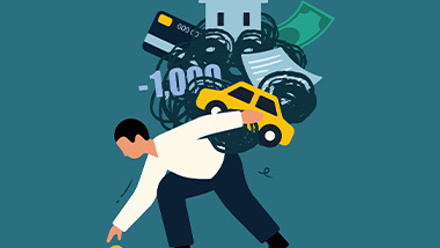Why now is the time to consider whether employee ownership is right for your business

What is employee ownership?
Employee ownership is a method of allowing a company to be owned (either in whole or in part) by its employees, or by a trust operating on behalf of employees. There are three common employee ownership models:
1) Direct ownership
In this scenario, employees acquire shares in the company directly. The employer provides a framework for employees to acquire shares, either on a discretionary basis or for all employees.
Direct ownership, often via an option plan, is common in entrepreneurial SMEs where the goal is to quickly grow a company and achieve a sale. A share plan can include performance criteria linked to an exit goal (or other commercial KPIs) and incentivises key staff to stay with the business and receive a pay-out when the company is sold.
2) Indirect ownership
This is commonly known as the John Lewis model. In this instance, employees do not have direct share ownership. Instead, a trust holds the ownership of a company on behalf of the employees.
So while employees are unable to sell shares for their individual benefit, they can benefit from tax-free bonus payments from the trust. This model can be appealing to business owners who are not pursuing a traditional exit strategy and wish to preserve a business sustainably, owned by its employees.
3) A hybrid approach
This is a combination of both direct and indirect ownership, taking elements from both methods to best achieve the company’s objectives.
What are the benefits of employee ownership?
For owner-managed business, three of the key benefits of employee share schemes include:
1) Tax savings
Employee share schemes can be a tax-efficient and cash-efficient means of increasing remuneration for employees.
Neither salary nor cash bonuses retain people on a medium to long-term basis. Cash pay also comes with hefty tax and NIC costs, and represents a drain on cash flow. An equity plan, on the other hand, provides an additional layer of compensation, and longer-term lock-in, in a more efficient manner.
Some arrangements provide tax-free gains when shares are sold; others provide for attractive capital gains tax rates at exit. There are also profit-sharing tax advantages to help reward employees year on year.
Under the indirect ownership method, up to £3,600 of tax-free bonus can be paid from the trust to each employee, each year. For those employees who own shares directly, a new nil rate of tax applies to dividends of up to £5,000 per year. This provides an opportunity for low-level, tax-free profit-sharing.
2) Recruitment and retention
Employee share schemes have been shown to help attract and retain talented employees.
Research found that almost 80% of employee-owners were happy to recommend their organisation as a place to work. A similar figure took a sense of achievement from their jobs, and employee owners were almost twice as likely to feel involved in management decision-making, compared to employees with no stake in their organisations.
3) Increased productivity
Employees know they can enjoy a meaningful reward if they help generate business growth and increase profits. Research has shown that companies with employee share schemes tend to outperform others, both in productivity and growth, during both boom times and recessions.
After the UK’s vote to leave the EU, an employee share scheme could be an effective way to demonstrate your commitment to employees. It might also attract and lock-in the talented people who will help navigate and drive the business through the uncharted waters ahead.
Why is now a good time to look at employee share schemes?
The introduction of the £5,000 tax-free dividend allowance in April 2016 gives a new opportunity for efficient profit-sharing. It is prompting businesses to consider extending their community of shareholders to include more employee participation.
Capital gains tax rates have been reduced, from 18% for basic rate tax payers and 28% for higher rate tax payers, to just 10% and 20% respectively, for annual gains in excess of £11,100.
Economic uncertainty and volatility in the stock-markets also provides an opportunity to negotiate favourable share valuations with HMRC, which means getting more bang for your buck in terms of efficient private company equity award. Agreeing a lower share value for an employee share option might mean fewer shares need to be put under option to achieve the desired post-tax incentive gain, thus minimising further dilution for existing owners.
In addition, there are wider considerations that may be relevant to your business. With the economic climate still uncertain, and pensions auto-enrolment and pensions capping starting to bite, many companies are searching for alternative ways to boost remuneration without increasing salary levels.
Finance directors looking to preserve or enhance cash flow can use employee ownership schemes as part of a pay-for-performance strategy. A share plan can enhance an employee’s total rewards in a way that can often provide corporation tax reliefs to the company as well.
Liz Hunter is tax director, share schemes and employer solutions, at Mazars.
This article was provided by Mazars.






